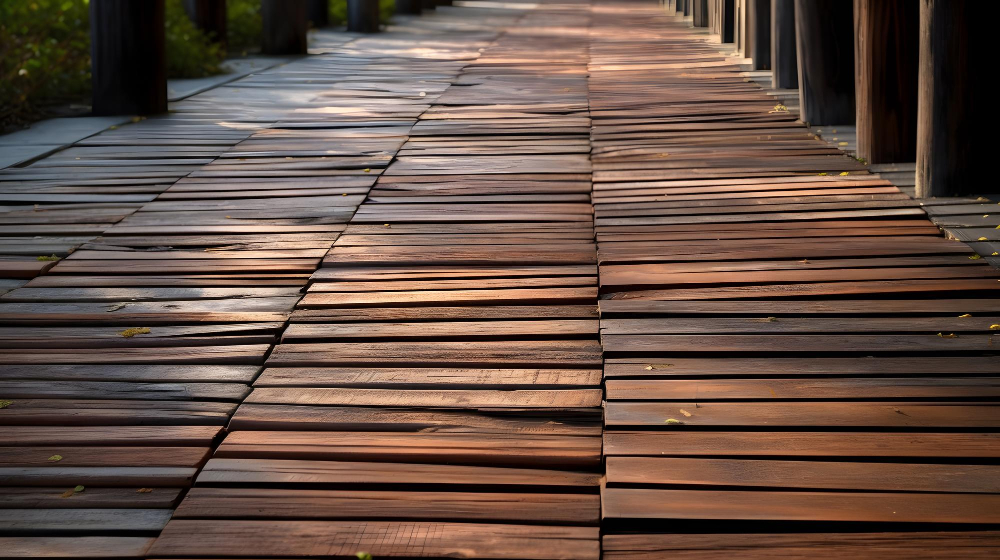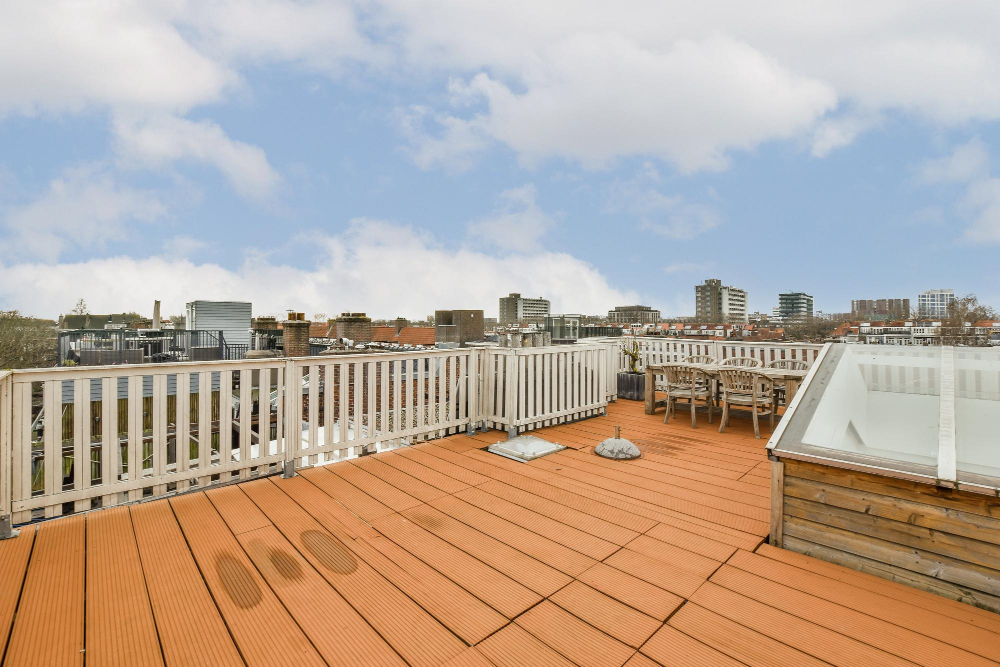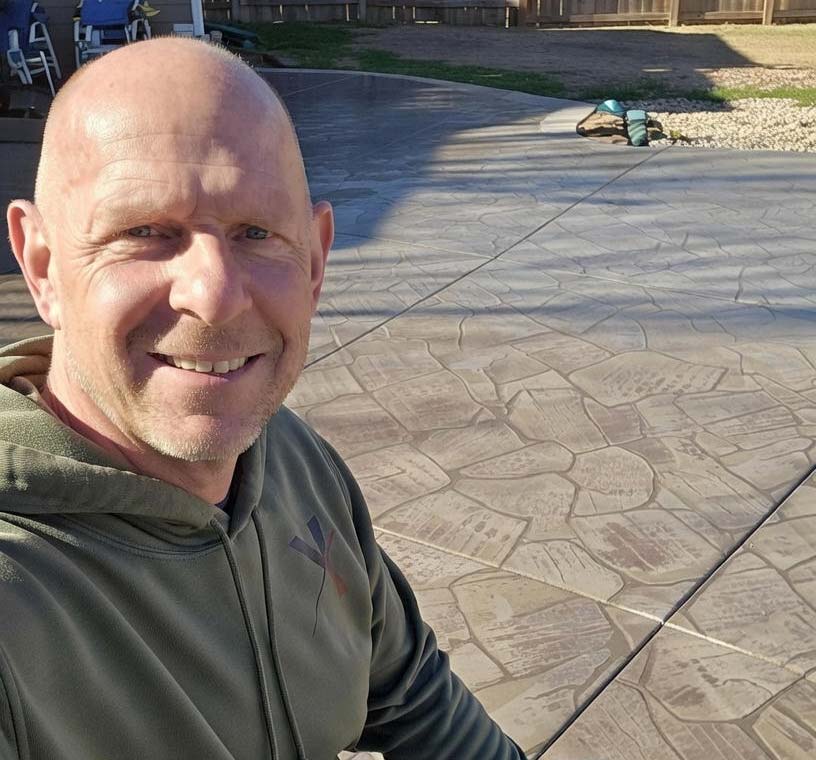Did you know nearly 40% of deck failures are due to water damage and rot? Waterproofing your deck is crucial to ensuring its longevity and safety. This post explores the best materials for deck waterproofing that can help protect your investment and keep your deck in top condition for years to come.
Why Waterproofing is Important?
Water damage is one of the leading causes of deck failures, which can result in costly repairs and even injuries. Waterproofing your deck creates a barrier between the wood and moisture, preventing rot and mold growth. This helps maintain the structural integrity of your deck and keeps it looking beautiful for longer.
If you seek a contractor in deck waterproofing, we’ve got you covered.
Best Materials for Deck Waterproofing
Here are the top materials you should consider when waterproofing your deck:
1) Pressure-Treated Wood
Pressure-treated wood is a popular choice for decking due to its ability to resist moisture and rot. This type of wood has been treated with chemicals that help prevent water damage, making it ideal for areas with high humidity or frequent rain. However, remember that pressure-treated wood needs to be sealed every few years to maintain its waterproofing properties.
2) Vinyl Membrane
Vinyl membrane is a synthetic material that offers excellent protection against water and can last up to 10-20 years when installed properly. It is also low maintenance, easy to clean, and comes in various colors and patterns, making it a popular choice for deck waterproofing.
3) Rubberized Coatings
Rubberized coatings are another popular option for waterproofing decks. They create a durable, seamless membrane that prevents water from seeping through the cracks in your deck. These coatings also offer UV protection, which helps to prevent color fading and keeps your deck looking new.
4) Sealant
A sealant is a great option for waterproofing smaller areas of your deck, such as stairs or railings. It comes in liquid form and can easily be brushed or sprayed onto the surface, creating a protective layer that repels water. Sealants also come in various colors, so you can choose one that matches your deck’s aesthetic.
5) Decking Tiles
If you want a quick and easy way to waterproof your deck, consider using decking tiles. These interlocking tiles are made of a composite material resistant to water and rot. They can easily be installed over an existing deck surface, providing extra protection against moisture.

6) Aluminum Decking
For a high-end, long-lasting option, consider using aluminum decking for your waterproofing needs. This material is waterproof and resistant to mold, mildew, and insects. It’s also low maintenance and comes in various colors and finishes to match your deck’s style.
7) Composite Decking
Composite decking is another popular material for waterproofing decks. It is made from a combination of wood fibers and plastic, making it resistant to water and rot. Composite decking offers UV protection, preventing color fading and keeping your deck looking new.
Tips for Choosing the Right Deck Material
When choosing the best material for your deck waterproofing project, here are some things you should keep in mind:
A. Consider the climate and weather in your area.
If you live in an area with high humidity or frequent rain, opt for a more durable and moisture-resistant material.
B. Think about the maintenance required for each material
Some materials, like vinyl membranes, require less maintenance than others.
C. Consider the aesthetic of your deck.
Choose a material that not only offers waterproofing but also enhances the overall look of your deck.
Frequently Asked Questions
What is the best product for waterproof decks?
The best product for waterproof decks depends on your specific needs and preferences. Some popular options include pressure-treated wood, vinyl membrane, rubberized coatings, sealant, decking tiles, aluminum decking, and composite decking.
What decking material lasts the longest?
Ipe decking, or Brazilian walnut, is known to be the strongest material, lasting 75 years.
Aluminum decking and composite decking are also a durable option with a lifespan of up to 25 years.
Can I apply waterproofing over existing deck materials?
Yes, most waterproofing materials can be applied over an existing deck surface. However, it’s always best to consult with a professional contractor to
How often do I need to waterproof my deck?
Most materials, such as vinyl membrane and sealant, must be reapplied every 2-3 years. However, pressure-treated wood may need to be sealed more frequently.
Can I waterproof my deck myself?
While you can seal smaller areas of your deck yourself, it’s best to hire a professional contractor for larger projects. They have the expertise and equipment needed to waterproof your entire deck properly.
Is there a difference between waterproofing and sealing?
Yes, waterproofing creates a barrier that prevents water from penetrating the wood, while sealing protects the wood from moisture and UV rays.
Contractor in Deck Waterproofing
Waterproofing your deck is a crucial step in maintaining its longevity and safety. You can prevent water damage, mold growth, and costly repairs with the right materials. When choosing the best material for your project, consider your deck’s climate, maintenance requirements, and overall aesthetic.
So whether you’re looking for a low-maintenance option like vinyl membrane or a high-end material like aluminum decking, our team is here to provide top-notch services and ensure your satisfaction with the result. Trust Youngblood Waterproofing & Concrete Services for all your deck waterproofing needs in Denver. Take your time – protect your deck now and enjoy it for many years!


